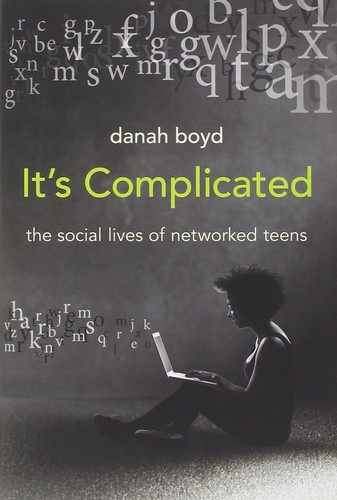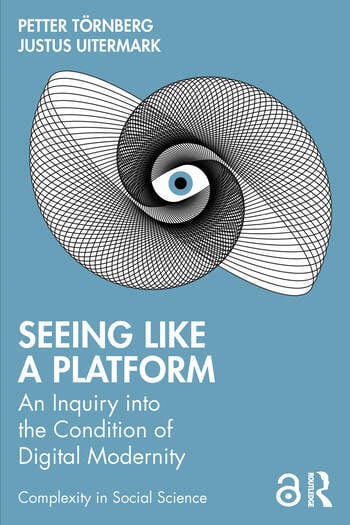Tejas Harad finished reading It's Complicated by Danah Boyd

It's Complicated by Danah Boyd
What is new about how teenagers communicate through services such as Facebook, Twitter, and Instagram? Do social media affect the …
This link opens in a pop-up window
20% complete! Tejas Harad has read 4 of 20 books.

What is new about how teenagers communicate through services such as Facebook, Twitter, and Instagram? Do social media affect the …

What is new about how teenagers communicate through services such as Facebook, Twitter, and Instagram? Do social media affect the …

A valuable introduction to the central issues in the sociology of the arts, this work draws on sociology, art history, …


Power needs abstraction, to make the unwieldy complexity of the social world legible and manageable. The proposition at the heart …

Power needs abstraction, to make the unwieldy complexity of the social world legible and manageable. The proposition at the heart …

Why we are so fascinated with sex and sexuality—from the preeminent philosopher of the 20th century.
Michel Foucault offers …

Why we are so fascinated with sex and sexuality—from the preeminent philosopher of the 20th century.
Michel Foucault offers …

How ought we to live with new technologies? What future do we want in light of the many changes they …

We live in a world in which Google's search algorithms determine how we access information, Facebook's News Feed algorithms shape …

We live in a world in which Google's search algorithms determine how we access information, Facebook's News Feed algorithms shape …

This book presents a framework for understanding different forms of internet celebrity that have emerged in the last decade. Through …

This book presents a framework for understanding different forms of internet celebrity that have emerged in the last decade. Through …

‘India lives in its villages’.
This statement popularized by Mahatma Gandhi is often referred to in discussions about the …